Did you receive an IRS notice? Don’t panic, and don’t go it alone. Our tax resolution team can review your letter, explain your options, and deal with the IRS for you. Call us today to protect your finances and your peace of mind.
What to Do If You Get an IRS Letter (Don’t Panic!)
Few things make your heart drop faster than seeing an envelope marked “Internal Revenue Service” in your mailbox. But before panic sets in, take a deep breath. Not every IRS letter means you’re in trouble — and even if it does involve an issue, there are clear steps you can take to handle it.
Here’s what to do if you receive an IRS notice:
1. Read the Letter Carefully
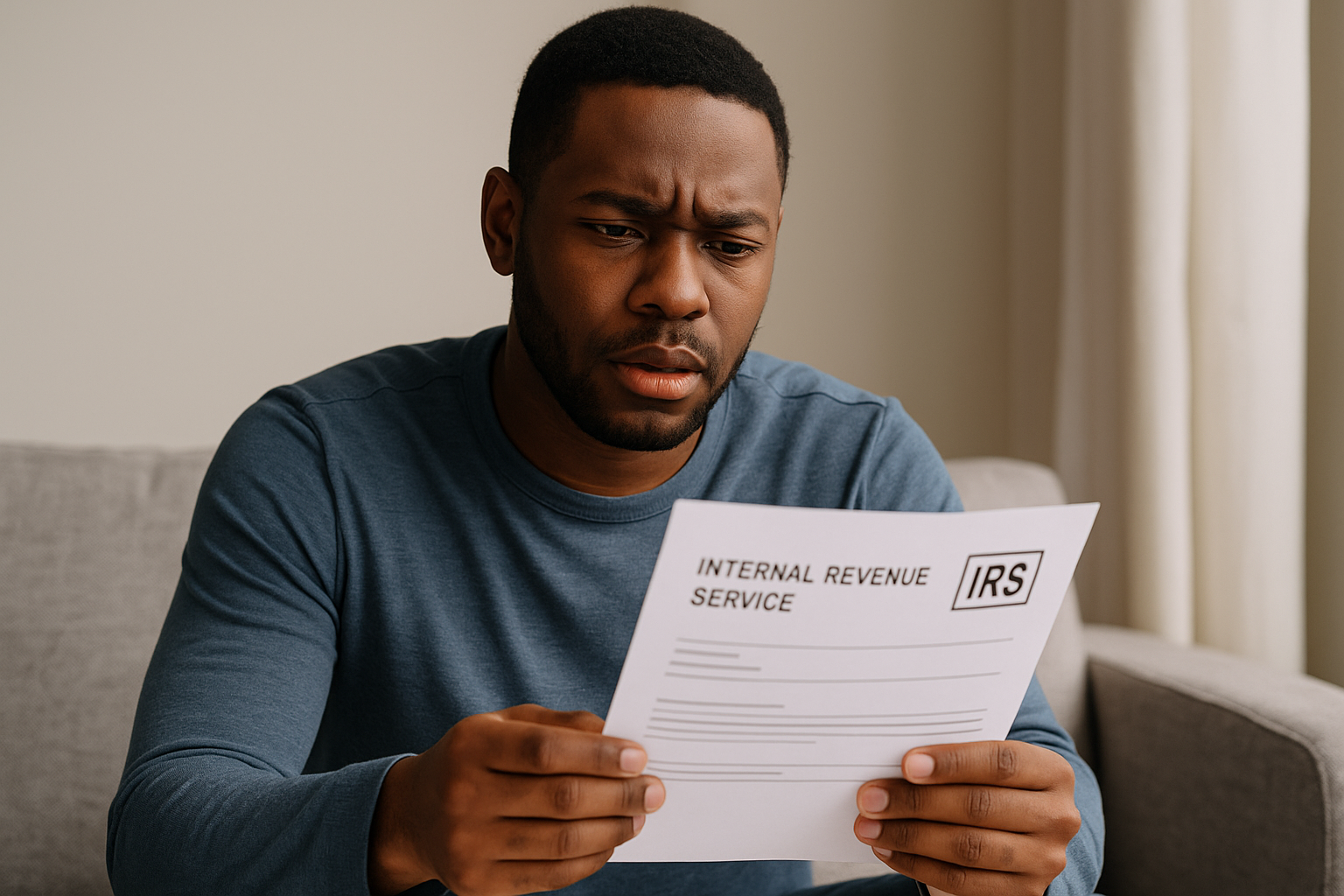
The IRS sends out different types of notices for different reasons. Some are purely informational, others may request clarification, and a few involve balances due or audits. The notice will list:
- The tax year in question
- The reason for the letter (e.g., missing form, math adjustment, unpaid balance)
- A deadline to respond or take action
Tip: Don’t assume the worst. Sometimes the IRS just wants to confirm information.
2. Verify Accuracy
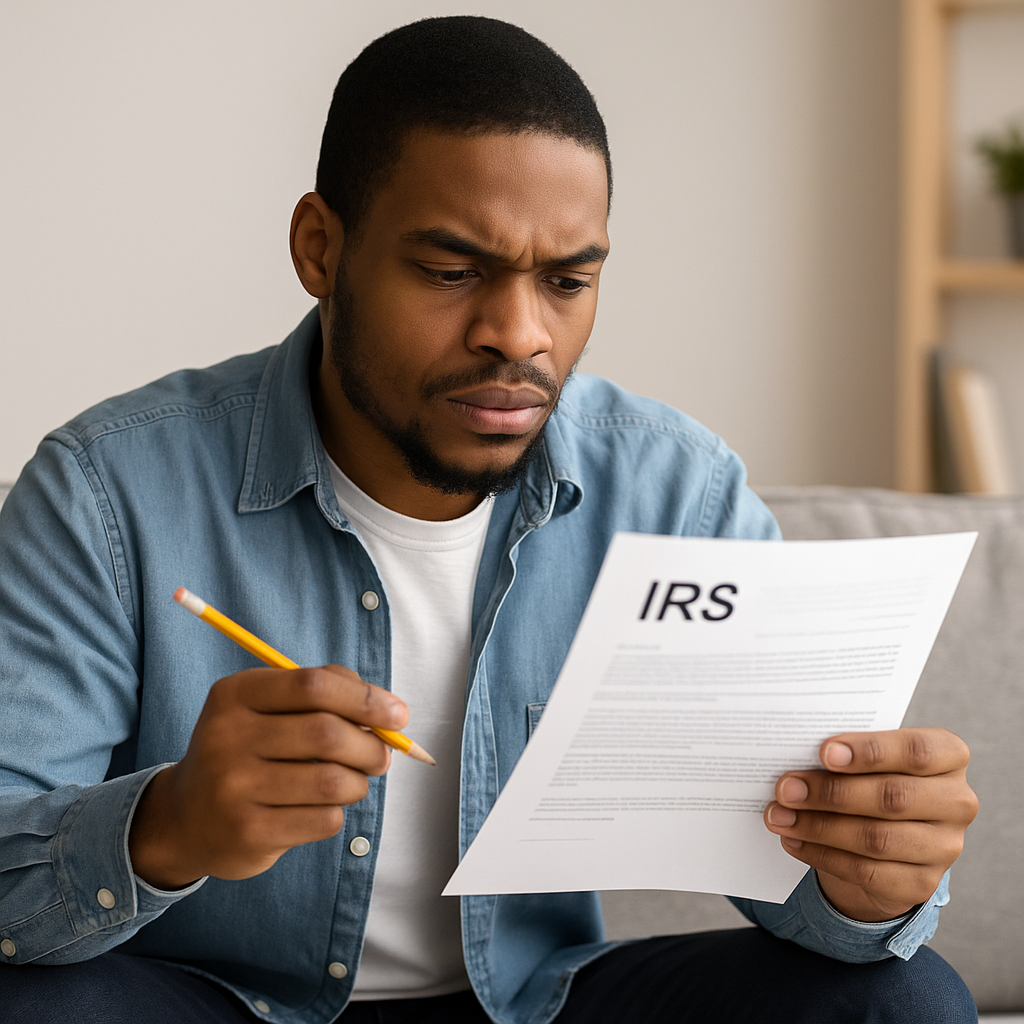
Mistakes happen — both on tax returns and at the IRS. Double-check the details in the notice:
- Does the income or deduction listed match your records?
- Are they referencing the correct Social Security Number or Employer Identification Number?
- Is the amount they claim you owe accurate?
Compare the letter against your filed tax return and supporting documents.
3. Don’t Ignore It
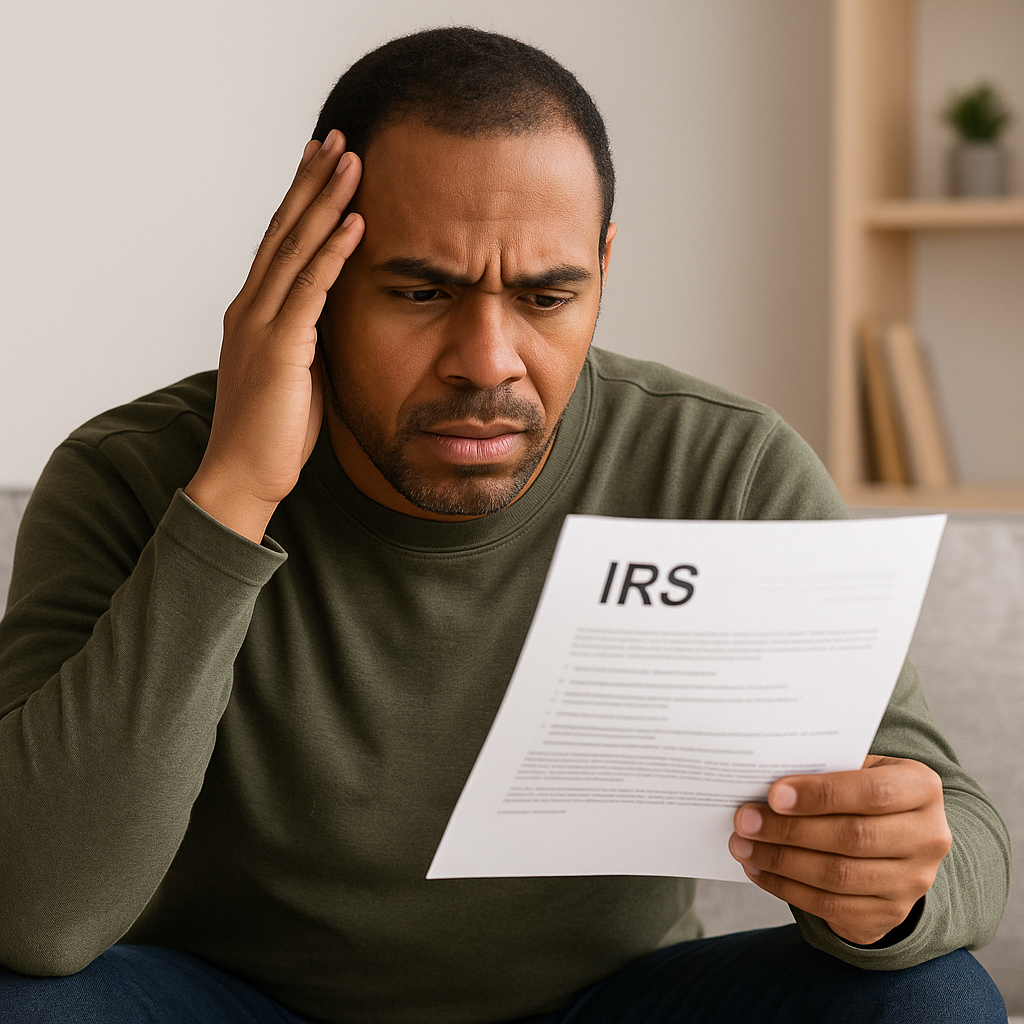
This is the most important step. Ignoring IRS letters doesn’t make them go away — it often makes things worse. If the letter has a deadline, missing it could mean:
- Additional penalties or interest
- Loss of appeal rights
- IRS enforcement actions (like levies or garnishments)
Always act before the deadline.
4. Gather Documentation
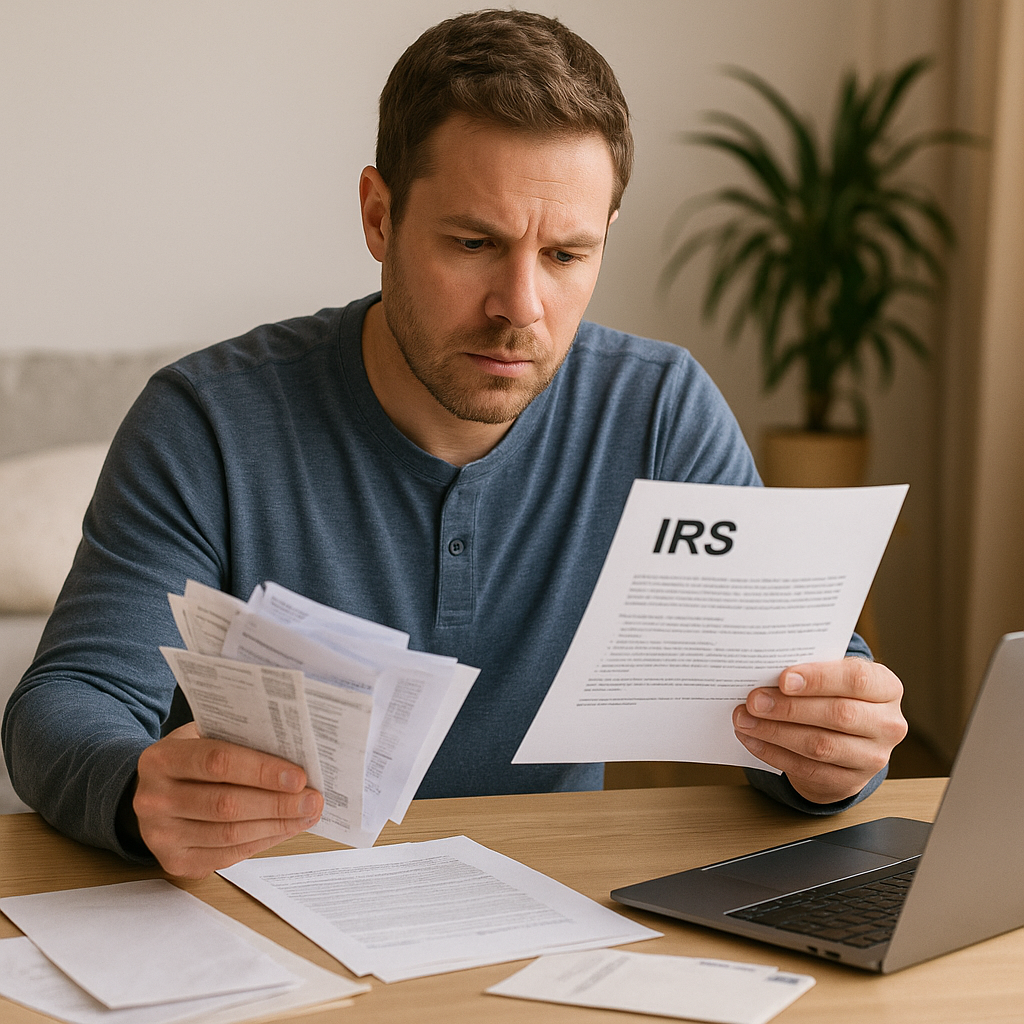
If the IRS is questioning an item on your return, collect the records that support it. This could include:
- Receipts
- Bank statements
- W-2s/1099s
- Expense logs
- Prior correspondence
Having organized proof makes it easier to respond quickly and effectively.
5. Know Your Options
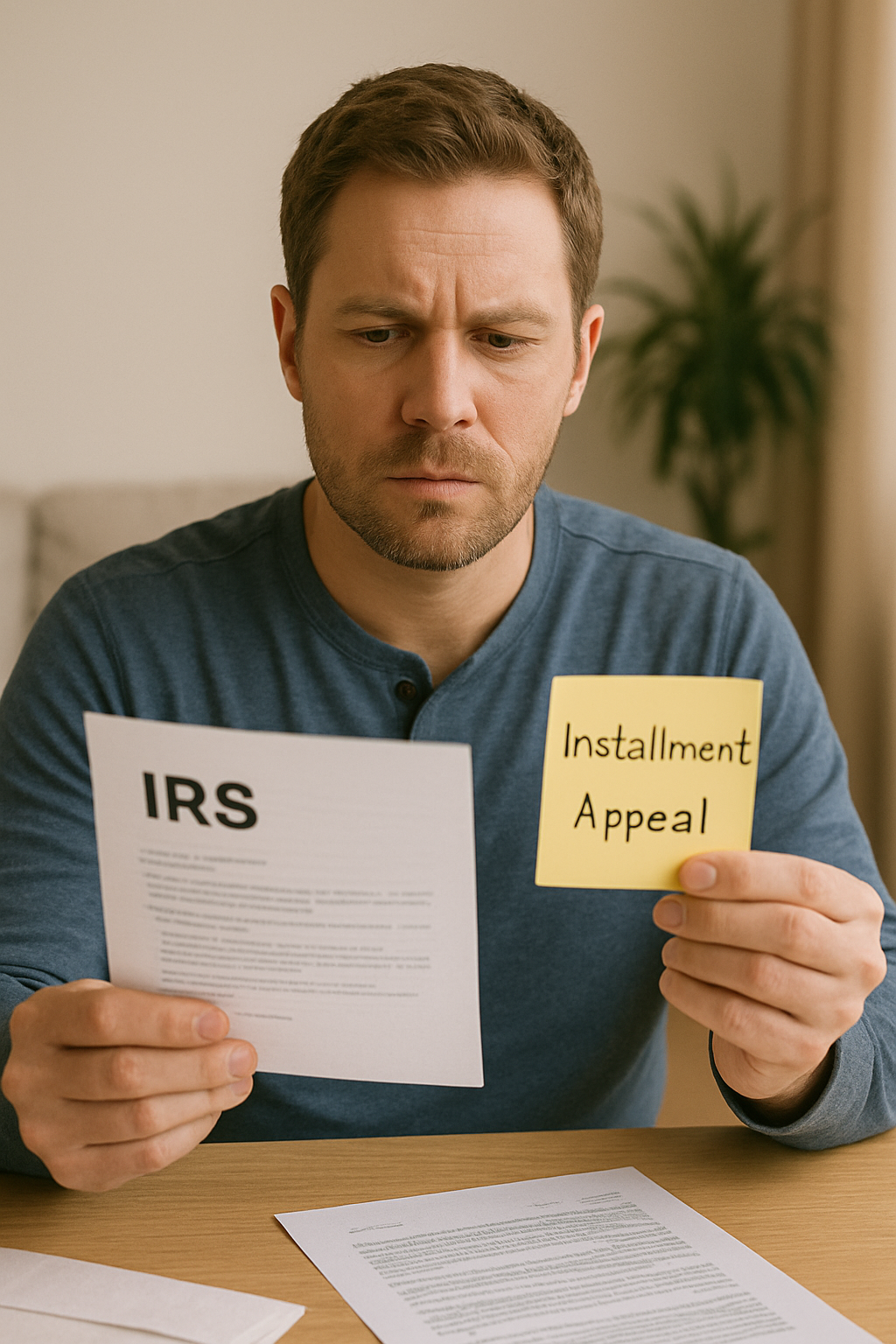
Depending on the type of notice, your options may include:
- Paying the balance (if the amount is correct)
- Requesting an installment agreement to pay over time
- Filing an amended return if there was a genuine mistake
- Submitting additional documents to clarify or prove your position
- Appealing if you disagree with the IRS’s findings
6. When to Call a Professional

While some letters are straightforward (e.g., “We adjusted your refund by $50”), others can be complex. Call a tax professional if:
- The notice involves a large balance due
- You’re facing a levy, lien, or wage garnishment
- The IRS is auditing you
- You’re unsure how to respond
A licensed tax professional (EA, CPA, or attorney) can speak directly to the IRS on your behalf with a Power of Attorney (Form 2848).
An IRS letter is not the end of the world. The key is to stay calm, read carefully, act quickly, and get help when needed. Many issues can be resolved with the right response — and some may even be in your favor.






